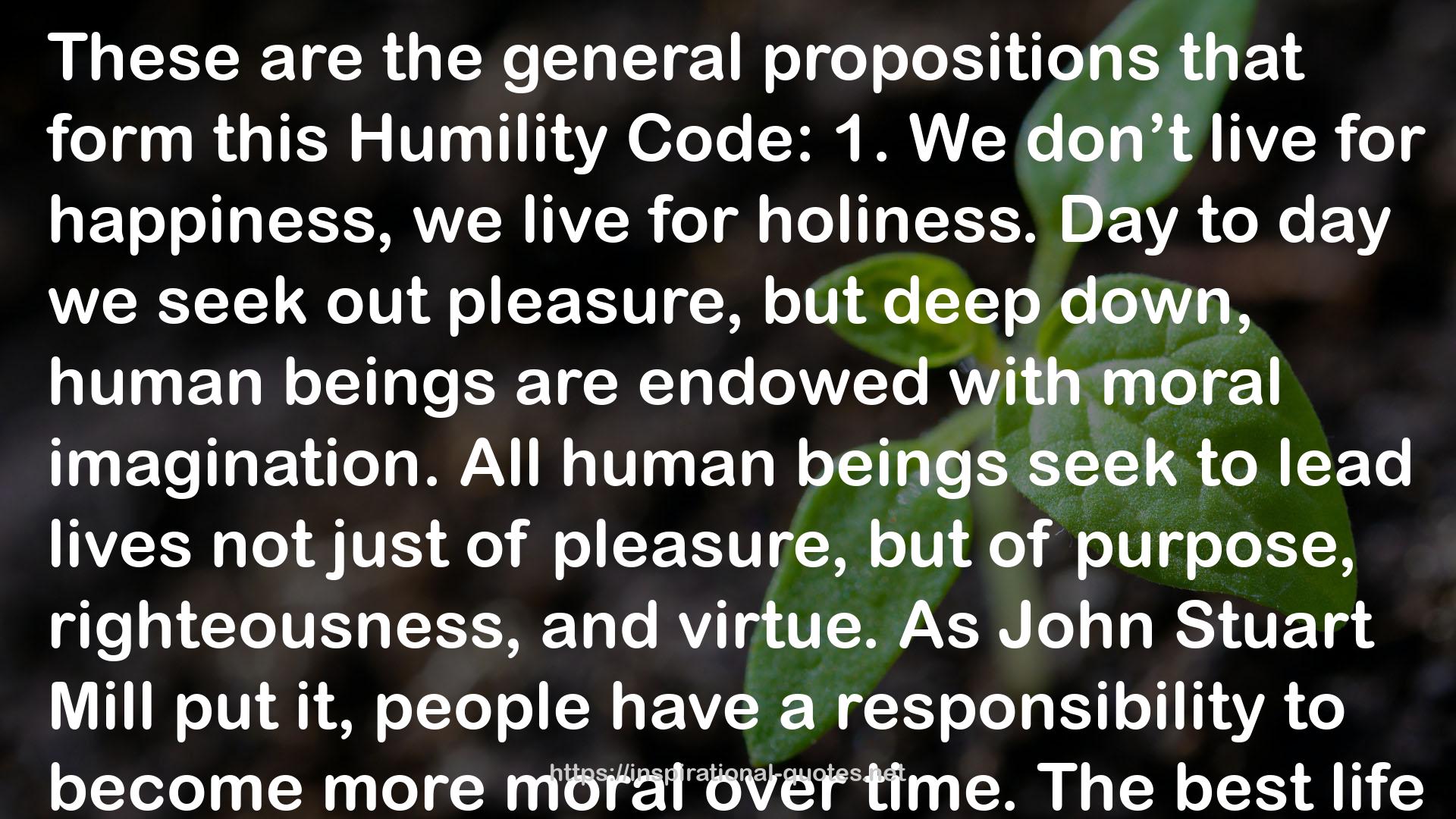" These are the general propositions that form this Humility Code: 1. We don’t live for happiness, we live for holiness. Day to day we seek out pleasure, but deep down, human beings are endowed with moral imagination. All human beings seek to lead lives not just of pleasure, but of purpose, righteousness, and virtue. As John Stuart Mill put it, people have a responsibility to become more moral over time. The best life is oriented around the increasing excellence of the soul and is nourished by moral joy, the quiet sense of gratitude and tranquillity that comes as a byproduct of successful moral struggle. The meaningful life is the same eternal thing, the combination of some set of ideals and some man or woman’s struggle for those ideals. Life is essentially a moral drama, not a hedonistic one. 2. Proposition one defines the goal of life. The long road to character begins with an accurate understanding of our nature, and the core of that understanding is that we are flawed creatures. We have an innate tendency toward selfishness and overconfidence. We have a tendency to see ourselves as the center of the universe, as if everything revolves around us. We resolve to do one thing but end up doing the opposite. We know what is deep and important in life, but we still pursue the things that are shallow and vain. Furthermore, we overestimate our own strength and rationalize our own failures. We know less than we think we do. We give in to short-term desires even when we know we shouldn’t. We imagine that spiritual and moral needs can be solved through status and material things. 3. Although we are flawed creatures, we are also splendidly endowed. We are divided within ourselves, both fearfully and wonderfully made. We do sin, but we also have the capacity to recognize sin, to feel ashamed of sin, and to overcome sin. We are both weak and strong, bound and free, blind and far-seeing. We thus have the capacity to struggle with ourselves. There is something heroic about a person in struggle with herself, strained on the rack of conscience, suffering torments, yet staying alive and growing stronger, sacrificing a worldly success for the sake of an inner victory. "
― David Brooks , The Road to Character
